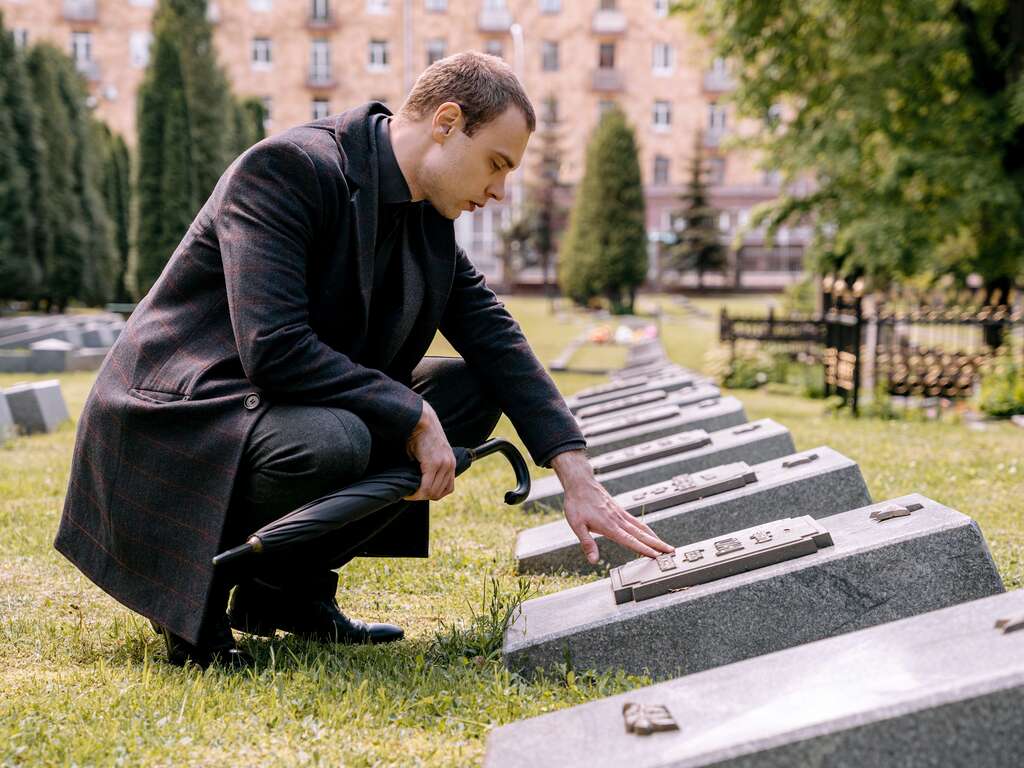There are many things you can do to help a grieving friend who has just lost someone they love. You can show them that you care by providing time, compassion, and even financial assistance.
If you can’t offer these things, you can share your own experience with your close friend and help them walk through their own grief and healing process. These simple support gestures will bring comfort and solace to the bereaved person.
1. Give Time to Your Grieving Friend
One of the best ways to acknowledge a grieving person is time. The gift of time can be in person to assist in practical tasks such as making phone calls and preparations. Time can be incredibly helpful just by being attentive listener where the grieving person does not have to censure difficult emotions in a right or wrong way.
If your grieving friend or family member is having a hard time processing their own feelings of complicated grief, offering a listening ear and the right words of understanding can go along way.
Risk Saying the Wrong Thing
Sometimes a grieving person or family member just needs company and to keep them going sharing your own experiences might be needed, and they may not. Creating a safe space where you might say the wrong thing is ok – the goal is to keep talking and moving forward. It is ok to not know what to say.
Understand that grief will never go away completely. The grief process will come in waves, but the best thing you can do for a friend or family member is to be there for them whenever they need it.
Someone Who is Grieving Wants Their Loved One Back
Most grieving people simply want their loved one back. Giving bereaved persons the time and a safe space to process the loss of the deceased person will make them feel less alone and more supported.
Spending time with the bereaved is one of the 7 things you can do for a bereaved person. Time can be extremely helpful to someone who is grieving, as long as you respect their privacy. Your grieving friend may be reluctant to talk about the loss of their loved one, so make sure to be patient.
2. Compassion for the Bereaved Person

Compassion is one of the most important traits of a loving relationship with a friend or family member. When you care about someone deeply, you can do things for them that they will appreciate and will not take for granted.
Compassion makes you aware of another person’s experiences and helps you see things from their perspective. By showing compassion to those who grieving loved ones, you will not only help them but will also experience benefits yourself. Being compassionate can improve your own experiences and well-being and contribute to a sense of purpose.
Compassion is the Ability to Feel the Suffering of Another Person
Compassion can be demonstrated by identifying with their experience and taking action to help them. Compassion is the ability to feel the suffering of another person, and it is a trait of love.
Different dictionaries emphasize different aspects of the meaning of compassion. Merriam-Webster’s definition stresses that compassion is the desire to relieve the suffering of another person. The New Oxford American dictionary, on the other hand, refers to the feeling of sympathy as “a warm and genuine feeling,” without relating it to any action.
When you are around a bereaved person, express compassion and show respect and support for the grieving process. While expressing sympathy does not resolve the griever’s emotions, showing compassion can provide them with space and energy to process their grief, pain, and feelings.
3. Financial Assistance During the Grieving Process

There are many ways to provide financial support to a friend who has recently lost a loved one. There are also many ways to offer emotional support.
For instance, you might be a huge source of relief by running errands or to care for their children. You can also help them write or deliver a eulogy. A person’s grief will be difficult to hear, but there are ways you can show your support and still allow them their space.
Organize a Fundraising Event
Another way to provide financial assistance is to organize a fundraising event. Go Fund Me for example is a registered company where you can have a registered charity. Friends and family can see the progression of need from a person’s failing health to palliative care, to death in a loving manner and participate in the practical assistance of the grief and death process.
Hold a Benefit
If the person has a significant number of friends, you can hold a benefit in his or her name. You can invite family and friends to attend the event and ask local businesses for donations.
You can hold a local bake sale and request friends to donate baked goods. It is best to plan ahead so that you can provide the bereaved person with as much support as possible.
Estate Settlements
The death of a loved one is a difficult and overwhelming experience. It can leave you and your loved one in need of financial help to continue living in the way they are accustomed. The bereaved may have to cope with estate settlements, funeral expenses, and even the loss of a dual income. Fear and concern can be extreme for someone who’s grieving especially if it was not expected or there was no plan for the deceased loved one’s in place such as life insurance.
Thankfully there are many ways to provide financial support for people who are grieving.
4. Support and Silence for the Grieving Person

One of the hardest things you can do for a friend who is grieving is silence. While this might seem unhelpful, it is actually a powerful way to show support and love. You may feel unprepared to relate to a friend who has lost a loved one. But this doesn’t have to be the case. You can still offer your presence and support by taking the time to listen and talking when you know what to say.
Don’t Feel Pressured to Offer Words of Support
Don’t feel pressured to offer words of support. A person grieving is many times comfortable being left alone and doesn’t want to talk about the life or death of their loved one. Be sensitive and considerate of the significant loss and know feelings and talking will come in time.
If you feel that your words will make the situation worse, don’t share your own opinions with them. You might be tempted to give advice or your own opinions on what happened to their loved one, but this may just make them feel worse. Listen more than usual and talk with a loving tone.
Grief Works at its Own Pace
Grief works at its own pace and some say in god’s plan or time. You can’t make it all better or make it go away. Grief is a natural process. Statements that begin with “You should” or “You will” are too directive. Listen to your loved one and offer comments like “Have you thought about…” or “You might consider…”. Make eye contact when needed and understand that outward appearances can be deceiving.
Remember that the grieving process never ends. Even if the person doesn’t show intense grief at first, they will still need your support and empathy. If you ask them about their feelings, and they share they feel depressed or feel isolated, you can talk and offer support.
Offering practical help shows your friend that you care. Sometimes words just don’t seem enough. But actions speak volumes and can be a symbol of love and nurturing. My friend Samantha’s father died and truly appreciated my offers of assistance. It took some of the stress off of her and meant that she didn’t have to worry about the service or how to feed her animals and herself.
5. Bereavement Support to Your Grieving Friend or Family Member

When you’re supporting a friend who is bereaved, it can be incredibly helpful to be physically present with them. You can offer a shoulder to cry on and offer support without making any judgments. Some people might prefer not to be physically touched or might not be ready to do so. If this is the case, there are other ways to show them that you’re thinking of them.
Talk with them to understand their grief and allow them to express their fellings about the life and death of their loved one. It is natural to want to offer advice, but it is important to respect their feelings. It is difficult to know how to help a friend who is mourning a loved one. It’s natural to feel sad and want to talk about the person who passed away.
Someone Who Understands Their Pain
A friend in need will appreciate the presence of someone who understands their pain.
It’s important to remember that grief is a personal experience and someone who’s grieving can take a long time to feel safe and truly talk about what happened. Don’t try to impose your own timetable or push the situation by criticizing their sadness or fear. Instead, try to create opportunities to talk and interact with your friend.
6. Offering to Help Plan a Celebration of Life or Funeral Arrangements

There are several ways to offer to help a friend who is grieving plan a celebration of life or funeral arrangements.
You can research online and make appointments to plan the service. Talk to prospective Celebration of Life companies like Eternally Loved. Learn about the costs, and what all can happen to be prepared once death has occurred.
These acts of kindness will be greatly appreciated by the person who is grieving.
7. Practice Self Care and Positive Mental Health

After the service is completed and feelings and grief linger, it can be a positive and loving support action to seek help for a grieving person.
A mental health professional might be needed for your loved one or family member. A person might need to talk to a mental health professional to process the lasting effects of grief and sadness.
Time will be the most valuable tool for people who are dealing with intense grief. While their intense emotions can last for years, they will eventually find ways to deal with the pain. If a bereaved friend is unable to do so, it may be time to consider joining a support group.
This way, they can share their feelings with people who have gone through similar losses.
Self Care
Helping a grieving friend can often bring up our own experiences of significant loss. Seeking help with a grieving friend can sometimes be the key for you both.
Staying in touch with someone during the grief process can be healing. It may be helpful to send him or her daily texts. This is a great way to keep communication consistent.
Eternally Loved Can Help You Plan a Celebration of Life
If you have experienced a loss or are wanting to plan for an imminent loss, we understand and can help plan a Celebration of Life and memorial service. We look forward to helping assist you during this time.



